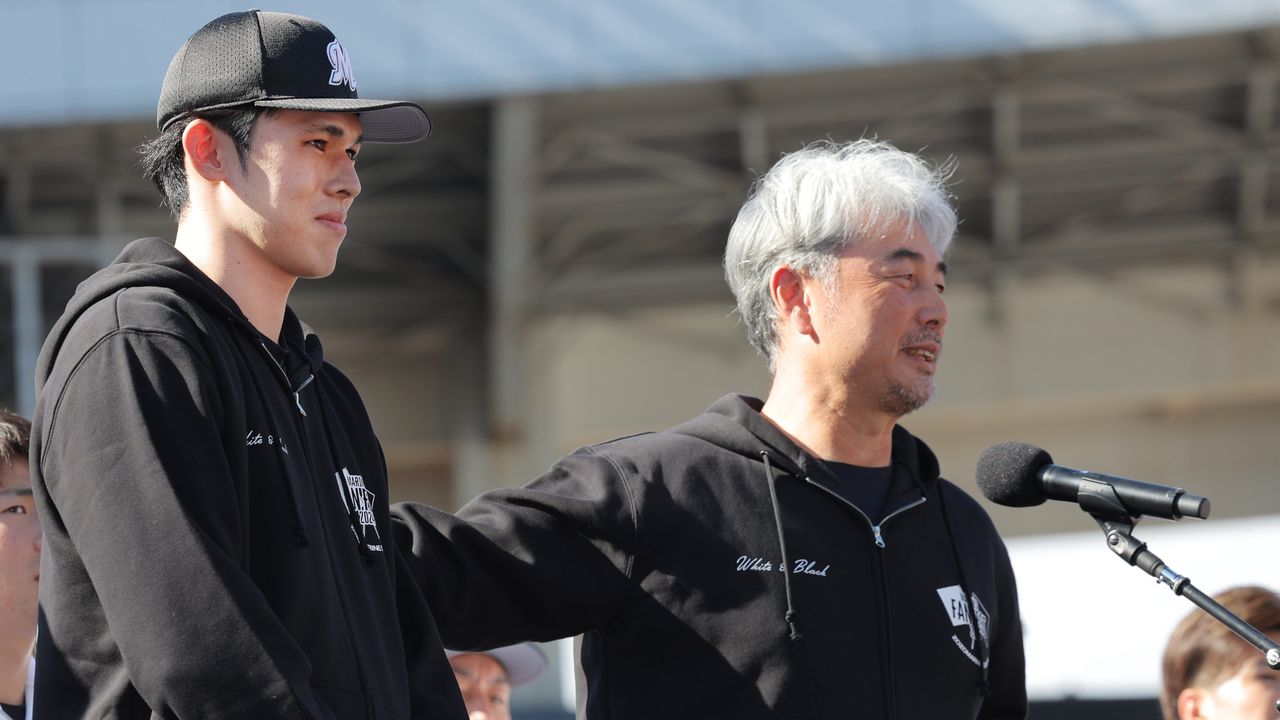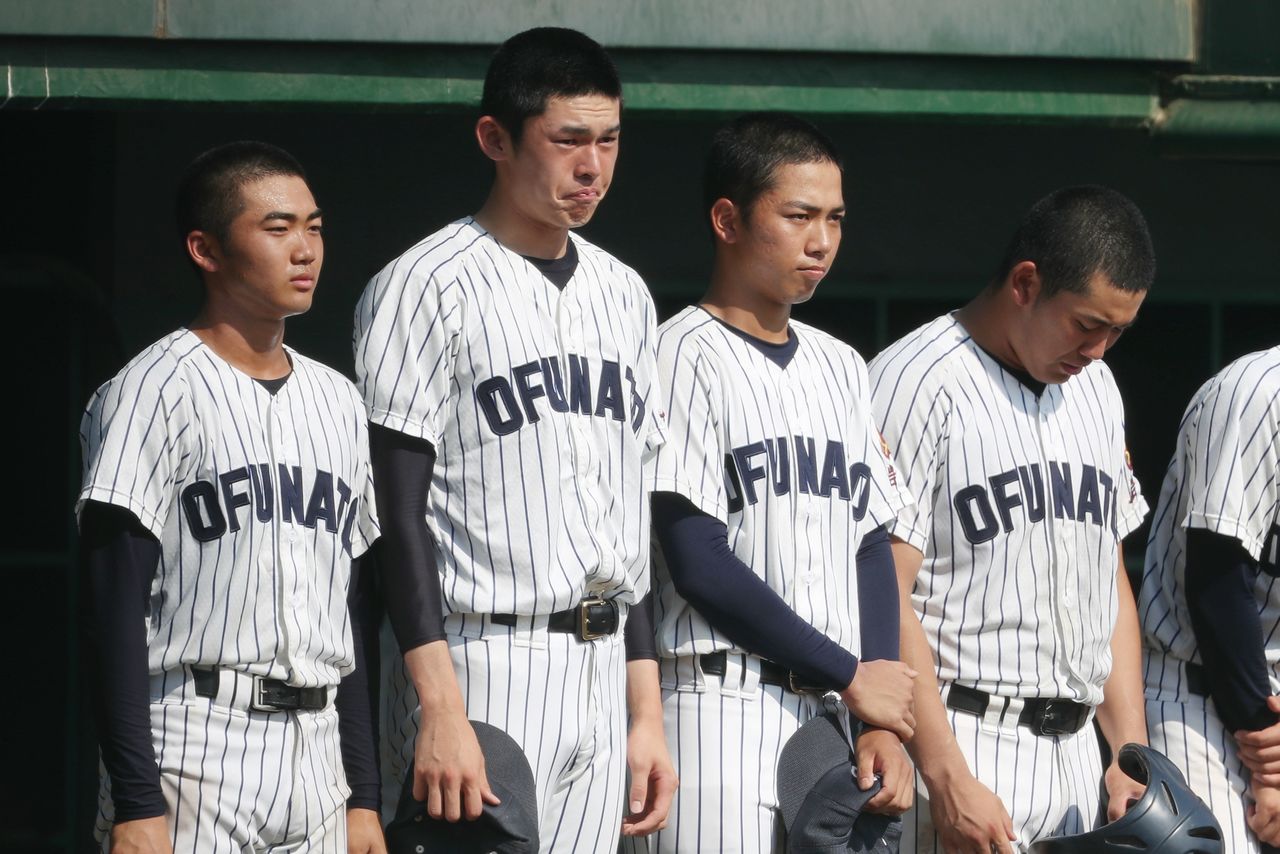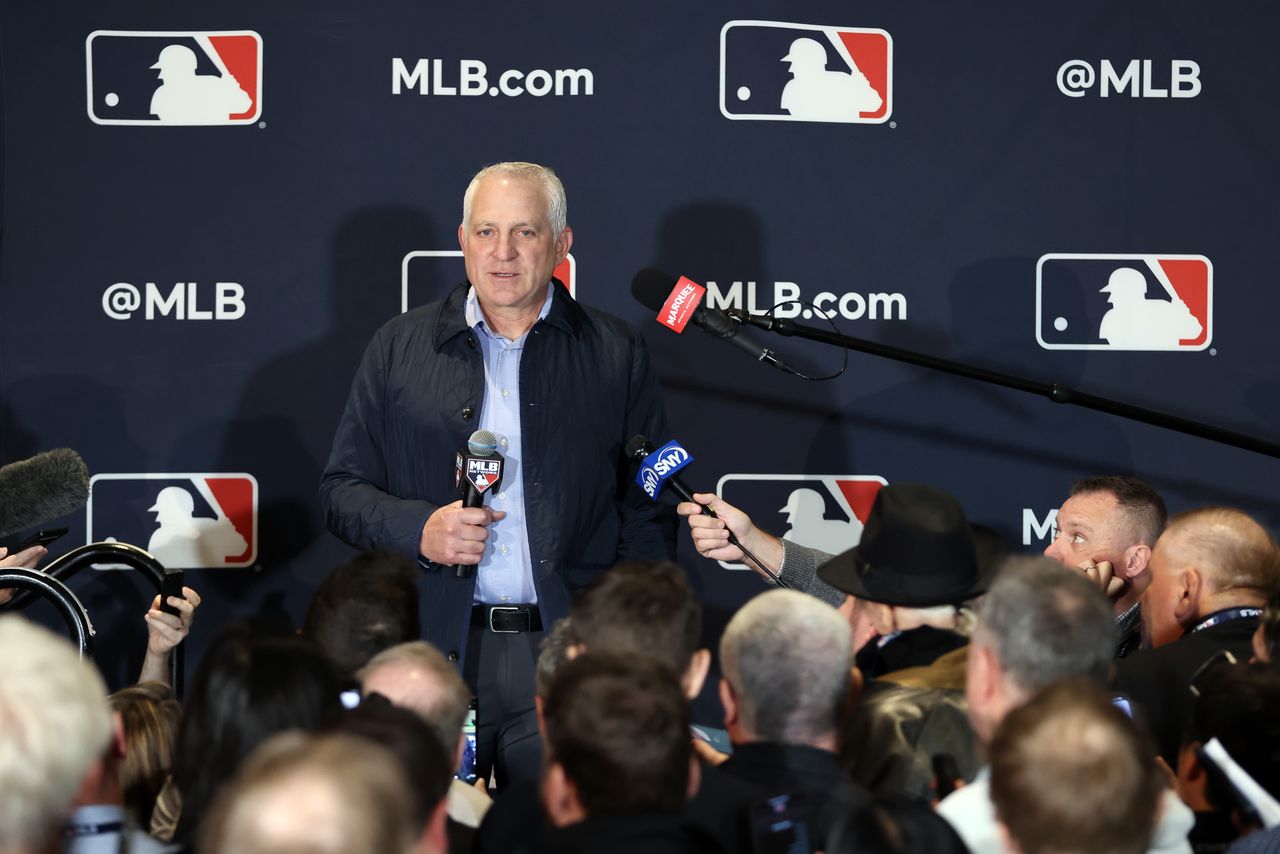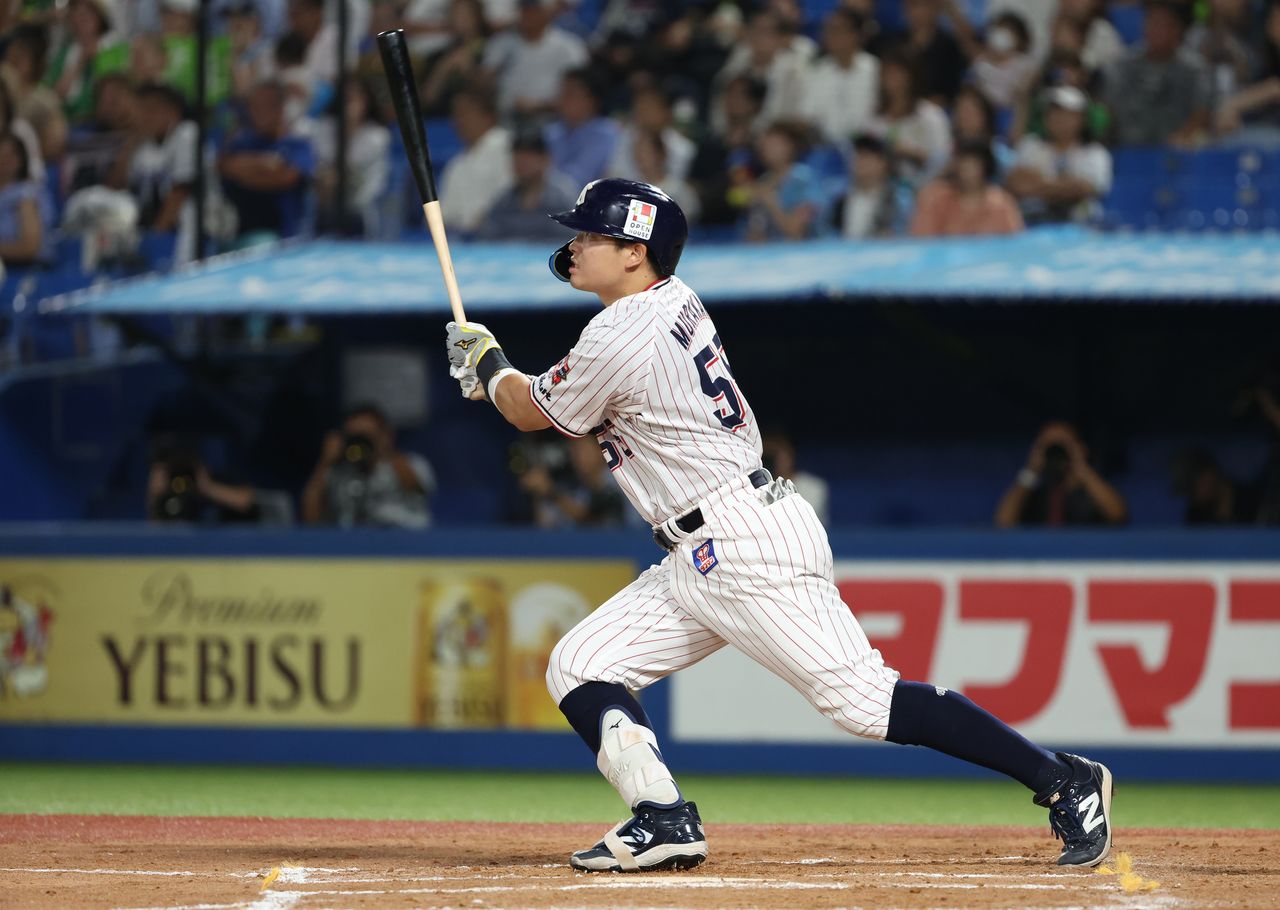
Another Japanese Ace Heads Abroad: Implications for Pitcher Sasaki Rōki’s Move to Major League Baseball
Sports- English
- 日本語
- 简体字
- 繁體字
- Français
- Español
- العربية
- Русский
Too Young for the Big Leagues?
In November at a Chiba Lotte Marines fan appreciation event, ace pitcher Sasaki Rōki unleashed a bombshell announcement: “With the support of my team, I have decided to pursue a pitching position in the North American Major Leagues. I will make the passionate support and encouragement I have received from my fans in Japan the engine for my success in America. Thank you!” This was a crystal-clear announcement of the young pitcher’s intent, despite coming well before he had even begun preliminary negotiations with any teams on the other side of the ocean.
Sasaki joined the Marines straight from Iwate Prefecture’s Ōfunato High School after graduating in 2020. In his first year with the team he did not take the mound even once, focusing instead on a training program to build his strength. From his second year on, though, he racked up 3, 9, 7, and 10 wins in successive seasons, building an overall record of 29 wins and 15 losses. In the 2024 season he finally achieved double-digit wins, cementing his position as a mainstay in the team’s rotation.
Nobody doubts that Sasaki has the talent to build still more on this record. On April 10, 2022, he threw the sixteenth perfect game in Nippon Professional Baseball history, becoming the youngest pitcher ever to do so at the age of 20 years, 5 months. In this game he also tied the NPB record of 19 strikeouts in a single game. In the 2023 season, he threw a pitch at a blistering 165 kilometers per hour (102.5 mph), matching the Japanese pro record set by Ohtani Shōhei. His performance during that season was marred by injury, though, preventing him from performing up to expectations.
Now Lotte has opted to post Sasaki to the Major Leagues, making use of the system available for players who have not spent the requisite nine years on a professional team in Japan to become free agents. The catch here is that the pitcher has yet to turn 25 and spend six seasons in professional baseball, which will limit the annual salary and signing bonus he is eligible for as a foreign player.
These limitations were originally implemented to prevent contract values from skyrocketing for young prospects and to keep MLB teams from headhunting the bulk of the young talent from Latin American nations before they gained needed experience in their home leagues. Now that they are being applied to recruits from Japan, Korea, and other Asian countries, chances are high that even if Sasaki makes his way to North America, it will likely be as a minor-league hurler at the AAA or AA level to begin with—a factor that will also considerably reduce the posting fee paid to Lotte for letting him go.
Lotte’s Willingness to Say Goodbye
As noted above, an NPB player must spend nine seasons with a pro team in Japan in order to qualify for free agency. Once a player registers as a free agent, though, his team is shut out of the opportunity to earn a handsome fee for allowing him to negotiate with a Major League ball club. Many Japanese teams therefore allow their most promising players to indicate interest in jumping to the Majors in their eighth year with the aim of collecting posting fees from interested counterparts.
If Sasaki were to wait until his twenty-fifth birthday, he would be able to jump straight into a pitching position with a Major League team, thereby earning a fatter posting check for the Lotte organization. But the Marines offered him a chance to make his move earlier, placing more weight on his desire to challenge himself in the world’s strongest leagues than on their own desire for money that could allow them to beef up their own program moving forward.
Satozaki Tomoya, who played as catcher for Lotte and for the Samurai Japan national team at the 2006 World Baseball Classic and 2008 Olympics, had this to say on his popular YouTube channel: “From Sasaki Rōki’s perspective, it’s a most fortunate development that Lotte is letting him make his move to the Majors. But for Lotte, the focus is supposed to be on building the most powerful team it can and aiming for a Japan championship. I have to wonder what Marines fans are thinking about all of this.”
One factor behind the club’s willingness to let Sasaki go is probably the presence of Yoshii Masato as its manager. A former Major Leaguer himself, Yoshii greeted fans at the above-mentioned appreciation event with the surprising announcement that “next season, we’re going to see a Marine head out to take on an even higher challenge—that Marine is Rōki.” The team’s skipper is clearly in Sasaki’s corner when it comes to the pitcher’s desire to move on to the Major Leagues.
From 2014, Yoshii spent a couple years at the University of Tsukuba’s graduate school studying coaching theory under Associate Professor Kawamura Takashi (currently professor), a leading Japanese researcher on the field of baseball. There are deeper connections to plumb here: Kokubo Yōhei, who coached the Ōfunato High School team that Sasaki played on, also studied under Kawamura during his student days at the University of Tsukuba. In short, two of the figures who have guided Sasaki during his baseball career were trained by the same noted baseball theoretician.
Sacrificing Wins to Foster Talent
Let us look back to the high school baseball scene in the summer of 2019. Sasaki was the ace pitcher for Ōfunato, which had advanced to the final round of the Iwate prefectural tournament, where a win against powerhouse Hanamaki Higashi High School would send it to the national Kōshien tournament for the first time in 35 years. Kokubo, the team’s manager, made the controversial choice not to put Sasaki on the mound for this game, and Ōfunato was trounced 12–2. Noting that the ace had thrown 435 pitches over four games through the semifinals, Kokubo argued: “In his three-year high school career, this was the game presenting Rōki with the biggest threat of injury. My goal was to keep him from harm.”

Sasaki Rōki, second from left, and other members of the Ōfunato team hold back tears following their loss to Hanamaki Higashi in the final game of the Iwate prefectural tournament on July 25, 2019. (© Jiji)
At the University of Tsukuba, Kawamura’s teaching has long focused on the need to avoid fielding players in ways that could threaten their future for the sake of an immediate win. In his book Kantoku, kōchi yōsei kōza (A Training Program for Baseball Managers and Coaches), he writes that his fundamental goal is “to create elite players,” clarifying that by “elite” he means “the sort of human beings who will help those weaker than them.” The Kawamura way aims to foster baseball players who give back to society in some way, and for those rare talents with the capacity to impact society considerably, it is all the more important to treat them with great care. Yoshii, too, has clearly taken this lesson to heart, and it informs his decision to allow a major talent like Sasaki to walk out the door and head to America, even if he is still a work in progress.
Another Hint from Sasaki’s Agent
Joel Wolfe, now serving as Sasaki Rōki’s agent in his negotiations with MLB organizations, made an illuminating comment after the December 2024 winter meetings of Major League teams’ general managers and other key figures. Speaking before the assembled press, he stated: “There are no absolutes in baseball. And through Rōki’s eyes, there are no absolutes in life. . . . If you look at some of the things that have happened in his life, some of the tragedies that have happened in his life, he does not take anything for granted.”

Baseball agent Joel Wolfe addresses sports journalists in Dallas, Texas, on December 10, 2024. (© Reuters)
These “tragedies” doubtless include the Great East Japan Earthquake of March 11, 2011, which took the lives of a then nine-year-old Sasaki’s father and two of his grandparents in Rikuzentakata, Iwate. It was this experience, hinted Wolfe, that helped to create a pitcher who does not take things for granted—extending even to the huge payday he might expect in the Major Leagues a couple years from now, or “a Yamamoto contract,” as the agent described it, referring to Los Angeles Dodgers pitcher Yamamoto Yoshinobu’s 12-year, $325 million contract signed at the end of 2023. In the end, said Wolfe, nobody else would be capable of telling Sasaki what to do; he is in control of his own destiny and will be making his own decisions.
Having lost people dear to him in his youth, Sasaki is doubtless focused on the importance of living in the now. Rather than thinking about a larger payday in the future, for himself or for the Chiba Lotte Marines, he sees an opportunity to take the mound in the Major Leagues, and has decided to move toward that goal decisively.
Great Expectations
When Ohtani Shōhei left the Nippon Ham Fighters behind and went to play for the Los Angeles Angels, he was also a 23-year-old pitcher opting for a lower-paying minor league contract. But as a proven double threat, both on the pitcher’s mound and in the batter’s box, he had helped take the Fighters to a Japan Series championship; he was an all-star pick both as a pitcher and a designated hitter, and had been tapped as the most valuable player in the Pacific League. Ohtani’s achievements in Japan go beyond what Sasaki has shown so far in his years with Chiba, but even based on them, it would have been tough to predict the stratospheric heights he would go on to reach with the Angels and Dodgers thereafter. Young stars like Ohtani then—and Sasaki today—have potential that is impossible to gauge.
The US sports media views Sasaki in a similar light. The ESPN baseball writer Jeff Passan describes him as “one of the world’s most talented pitchers,” and the pitcher’s eventual destination is one of the hottest baseball topics in the off season. American fans of the sport are eager to see him choose a team and take his place on the mound to show what he is capable of.
In Japan, meanwhile, the pro baseball world seems to have more mixed feelings on the matter—a sense of consternation, and even of crisis, has set in. Symbolic of this concern about mounting interest in MLB action was the Nippon Professional Baseball organization’s decision last fall to strip Fuji Television of its press credentials for the Japan Series after the network broadcast programs focusing on Ohtani Shōhei’s performance in the World Series in the same time slot as the opening games of the Japan Series. The Japanese baseball establishment appears to be threatened by the growing focus on Ohtani and Major League Baseball in general.

Yakult Swallows slugger Murakami Munetaka heads toward first at Tokyo’s Jingū Stadium on August 13, 2024. Murakami indicated his interest in moving to MLB at the end of the season. (© Jiji)
There are certain to be more Japanese stars who make the move to North America. Murakami Munetaka, who hit 56 home runs for the Yakult Swallows in 2022, the most ever for a Japanese-born player, announced at the end of the 2024 season that he hoped to play for a Major League team. The sporting world is increasingly global in nature, and Japanese baseball must clarify its position within it. The time may have arrived to rethink our approach to the posting and free-agency systems that govern players’ international movements.
(Originally published in Japanese. Banner photo: Sasaki Rōki, left, and Chiba Lotte Marines manager Yoshii Masato speak to fans at an appreciation event on November 17, 2024, at Chiba’s Zozo Marine Stadium. © Jiji.)
